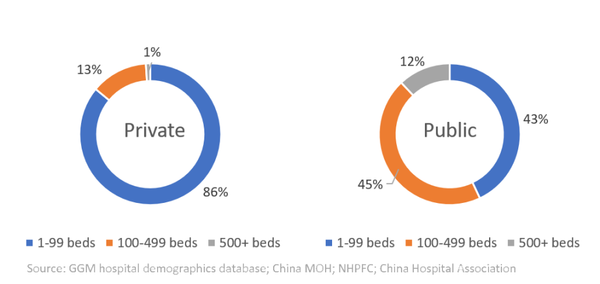-
Home
-
About JCTR
-
Gold Open Access
-
Issues
-
Editorial board
-
Author guidelines
-
Publication fees
-
Online first
-
Special issues
-
News
-
Publication ethics
-
Partners
-
Submit your manuscript
-
Submit your review report
-
Editorial Office
-

This work is licensed under a Creative Commons Attribution-NonCommercial 4.0 International License. ISSN print: 2382-6533 ISSN online: 2424-810X
Volume 7 Issue 5
From conventional healthcare to e-health: Social and spatial transformation. Using a comparison between HK and mainland China
Carine Milcent
Milcent. J Clin transl Res 2021; 7(5):10
Published online: September 29, 2021
Abstract
Background and aim: Does spatial organisation of healthcare access still matter in China? I assess how e-health has transformed the notion of healthcare access and what spatial dimension of healthcare means in China today and in the near future. I also consider a dynamic perspective to propose keys to anticipate upcoming changes. Hong Kong has a very efficient healthcare system with a dense network of high-level hospitals and a high level of healthcare access. In major Chinese urban centres, a deliberate policy to improve healthcare availability has resulted in a spectacular increase in the number of healthcare structures over the last two decades. This includes urban healthcare centres and outpatient clinics. Nevertheless, most of the population faces explicit and implicit financial penalties to get full healthcare access. To solve the problem, a digital health revolution is emerging.
Methods: I use a qualitative case study approach. I conducted a series of semi-structured, face-to-face interviews to evaluate experiences, expectations, and opinions of patients regarding healthcare access and its associated financial burden as well as their use of digital health.
Results: I assessed how e-health has transformed the notion of healthcare access and what spatial dimension of healthcare means today and in the near future in China. I also considered a dynamic perspective to propose keys to anticipate upcoming changes. Healthcare centres tend to shift from a place to get cured to a link within an e-healthcare pathway. For instance, this is a place to get e-prescribed medication. Advantages of this shift include a reduction in the cost of healthcare and remote access to highly qualified medical staff, bypassing the lack of trust in the quality of care offered in local hospitals.
Conclusion: A forward-looking approach suggests that e-healthcare is becoming the entry point to healthcare for a large part of the population.
Relevance to patients: This study informs the policy makers of upcoming changes, and contributes to understanding and anticipating modifications needed in the healthcare system.

DOI: http://dx.doi.org/10.18053/jctres.07.202105.010
Author affiliation
1. French National Centre for Scientific Research
2. Paris School of Economics
*Corresponding author
Carine Milcent
French National Centre for Scientific Research, Paris School of Economics, Paris, France
Email: carine.milcent@psemail.eu
Handling editor:
Michal Heger
Department of Pharmaceutics, Utrecht University, the Netherlands
Department of Pharmaceutics, Jiaxing University Medical College, Zhejiang, China

